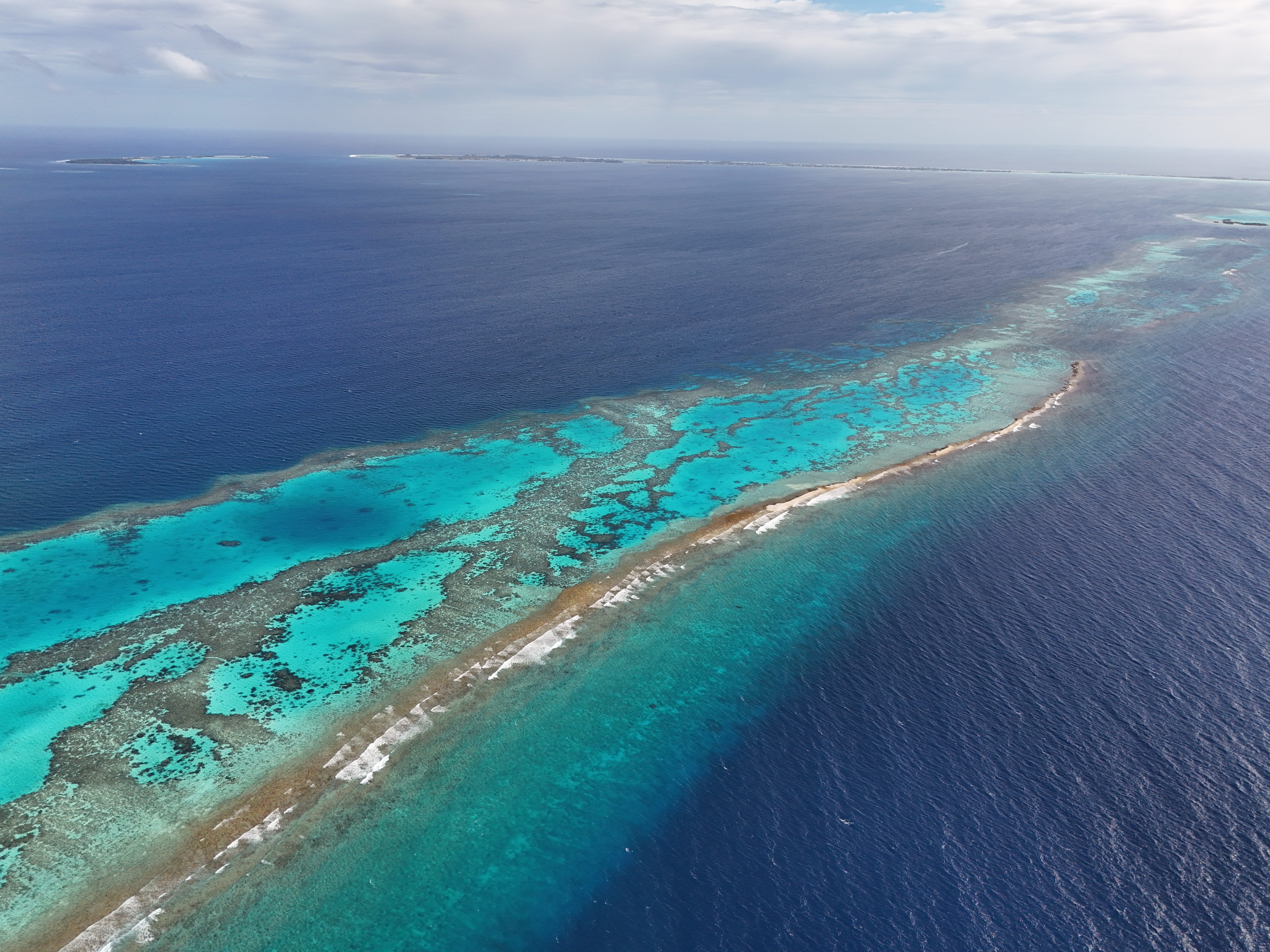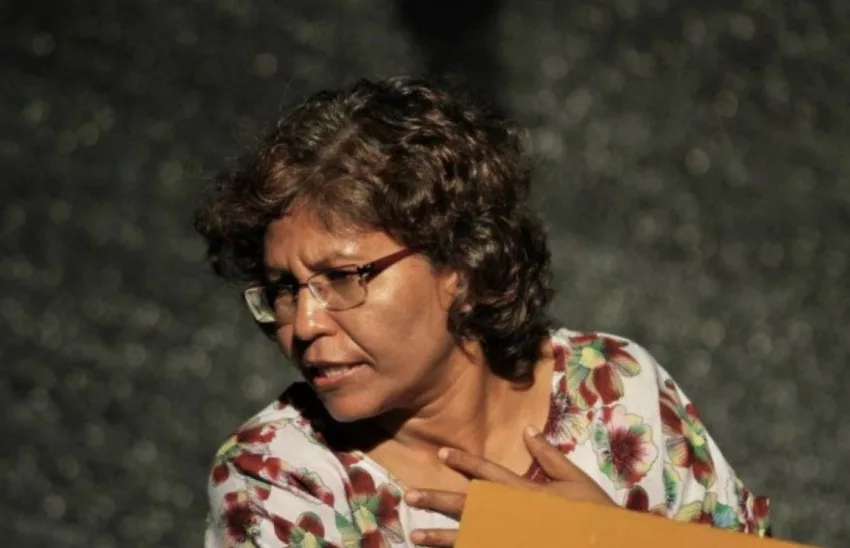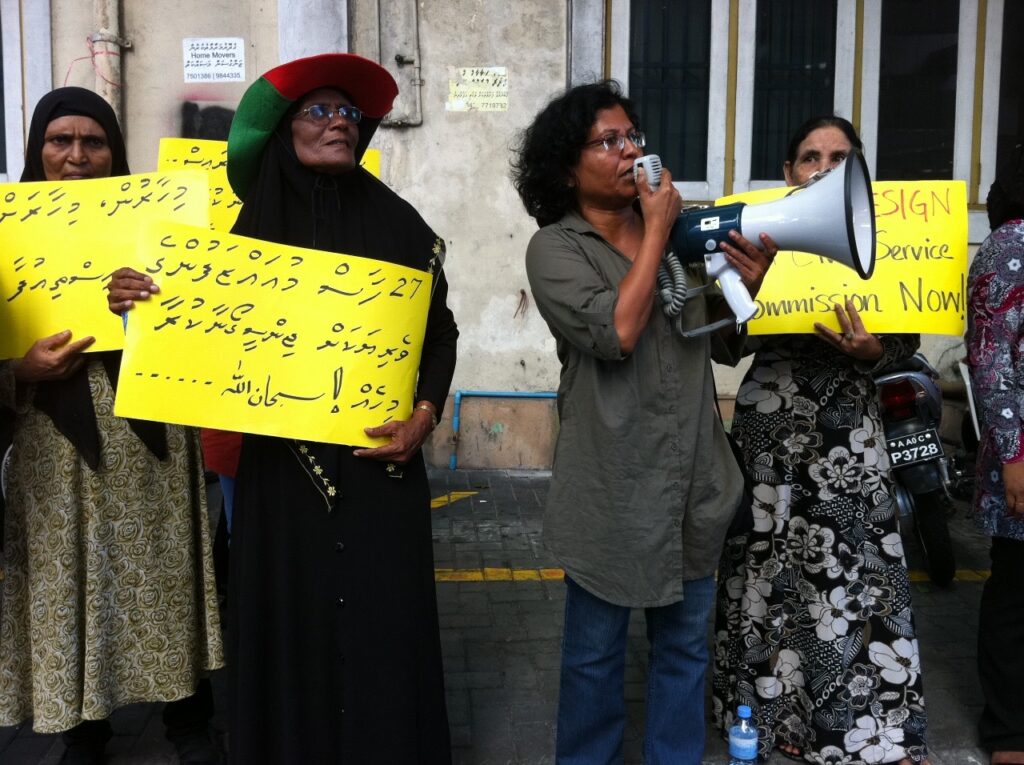The enigmas of environmental governance in the Maldives: a legacy of authoritarian environmentalism
We won’t have a society if we destroyed the environment – Margaret Mead

by Ibrahim Mohamed
The Maldives is one of the world’s most striking paradoxes. On the global stage, we are hailed as a climate champion, a voice for the vulnerable, and a moral compass in international climate negotiations. Yet at home, our environmental governance is fraught with contradictions. While leaders speak passionately about our climate vulnerability in the Conference of the Parties (COP) meetings of United Nations Framework Convention on Climate Change (UNFCCC), our environmental policies at home often tell a different story: a reliance on centralized, top-down governance, weakened institutions, and development strategies that sacrifice environmental integrity for short-term political gains.
This is the enigma of environmental governance in the Maldives. Its Constitution enshrines the duty to protect the natural environment and safeguard intergenerational equity. Yet in practice, decision-making remains trapped in a legacy of what scholars call authoritarian environmentalism, a model where governments centralize control, suppress dissent, and frame environmental management as a technocratic rather than democratic issue (Gilley, 2012). Combined with path-dependent historic institutionalism, the tendency to repeat historical patterns even when they no longer serve the present, results in an environmental governance system that struggles to meet the urgent challenges faced by the Maldives (Mohamed & King, 2017).
For a nation composed of fragile atolls and lagoons, where coral reefs serve as seawalls and wetlands buffer storms, the stakes could not be higher. Weak environmental governance here is not just maladministration, it is also maladaptation to climate change.
Democratic backsliding and its environmental costs
In 2009, then-President Mohamed Nasheed famously declared: “We need democracy for mitigation and adaptation for climate change.” He was right. Democracy creates transparency, fosters participation, and ensures accountability, vital for sustainable environmental policies.
Yet, the Maldives has been drifting in the opposite direction. Freedom House scores show civil liberties and political rights stagnating at low levels between 2020 and 2025. De-democratisation such as curtailing civil society engagement, restricting media freedom, and undermining judicial independence has emerged during the past two years of the incumbent government. When democratic checks erode, environmental governance suffers. Independent oversight becomes a casualty of political expediency. For instance, the Environmental Protection Agency (EPA), once semi-autonomous, has been dissolved and reabsorbed into the Ministry of Tourism, under direct executive control (President’s Office, 2025). The replacement of EPA by the Environmental Regulatory Authority (ERA), which answers to political appointees rather than scientific evidence, is a major blow to environmental governance. The message is clear: environmental decision-making is no longer about independent expertise; it is about political convenience.
Dismantling oversight in the name of “necessity”
One of the most troubling trends in recent de-democratisation is the misuse of the “doctrine of necessity”. In law, this principle allows extraordinary measures when a genuine crisis leaves no other option. In the Maldives, however, it has been stretched beyond recognition. The actions of de-democratisation are justified using the doctrine of necessity.
Fast-track provisions in EIA regulations now allow projects prioritized by the cabinet to bypass normal scrutiny. Airports, harbors, and reclamation projects can be green-lit within days, sometimes just 24 hours to evaluate and issue approvals. Officials justify this under “necessity,” but the reality is stark: there is no imminent national emergency that requires abandoning environmental safeguards and doing development projects in a haste, while the country is overburdened with debt. Instead, this necessity is a political excuse: a way to push through vote-winning infrastructure projects before elections.
Such shortcuts erode public trust and leave ecosystems vulnerable. Coral reefs cannot regenerate on political timetables. Wetlands cannot buffer floods if they are filled in for roads and airports. By weaponizing the language of necessity, leaders gamble with our natural assets that once lost can never be replaced.
The weight of history: authoritarian legacies and path dependence
To understand why the Maldives struggles with environmental governance, one must look backward. For decades before democratic reforms in 2008, the country was governed through centralized, authoritarian rule. Environmental policies were crafted by technocrats serving political elites, with little space for citizen participation.
The Environmental Protection and Preservation Act of 1993 reflected this approach: decisions were highly centralized, with EIAs carried out by ministry insiders and no independent oversight. Technocrats who challenged government decisions were sidelined, while loyalists were rewarded. This created a civil service culture where public input was seen not as a right, but as an inconvenience, by the intelligentsia of the environmental fraternity.
The 2007 EIA regulation led by Minister Ahmed Abdulla, briefly improved matters by introducing independent evaluators and criteria for site selection for development. It even invoked the Cairo Principles, which stress sustainable, ecosystem-based reconstruction after disasters. But these safeguards were short-lived. The 2012 coup that toppled the first democratically elected government led to a rollback. Parameters protecting reefs and unique ecosystems were stripped away as the conditions for selecting sites and islands for development was abrogated. The drive for “speed and efficiency” trumped precautionary principle and sustainability. In the same year of toppling the government, EIA regulation of 2007 was replaced with a new regulation to expedite approvals.
While international best practices in Environmental Impact Assessment (EIA) emphasize early, inclusive, and substantive public participation, transparent access to information, independent regulation, and enforceable outcomes (García-López & McCormick-Rivera, 2024), the Maldivian system remains narrow and procedural. Public engagement is limited to a short post-report comment period with hearings held only at the Ministry’s discretion, and institutional independence has been undermined by the recent restructuring that placed the EPA under direct ministerial control. Legal standing for citizens is weak, transparency requirements are minimal, and monitoring often lacks enforcement, with government ministries frequently overriding EIA recommendations. For instance, the majority of government projects do not fulfill the monitoring requirements stated in EISs. As a result, despite strong constitutional commitments to sustainability and intergenerational equity, Maldivian EISs risk functioning as box-ticking exercises rather than genuine safeguards of environmental integrity.
This is the essence of path dependency: once institutions are set on a trajectory of authoritarian, top-down decision-making, it becomes extraordinarily difficult to move to new paths. Each subsequent administration tweaks the system to suit its interests, but the fundamental culture of centralized control and disregard for public participation remains intact.
Tourism: a silent but powerful actor
Tourism is the cornerstone of the Maldivian economy, contributing a significant portion of its GDP and generating billions in revenue annually. For example, in 2024, the tourism sector reportedly earned USD 5.6 billion, with resorts accounting for a substantial majority of that revenue. Despite this economic reliance on tourism, the sector’s relationship with environmental governance is complex and has been described as a “silent saboteur” due to its often-detrimental impact on the fragile marine ecosystem, which is, ironically, the very foundation of the industry’s success. This dynamic highlights a conflict between economic growth and environmental sustainability, as tourism development, particularly through large-scale projects, can lead to environmental degradation that undermines the long-term viability of both the industry and the country.
As Zubair, Bowen, and Elwin (2011) demonstrate, EIAs for resorts are often superficial, repetitive, and produced by the same consultants. Reports downplay impacts, rarely engage local communities, and are written in English rather than Dhivehi, excluding ordinary Maldivians from understanding them. In 2015, lobbying by resort owners even succeeded in shifting the authority to approve EIAs for new resorts from the EPA to the Ministry of Tourism: a blatant conflict of interest.
Today, with the Ministry of Tourism and Environment merged, the fox guards the henhouse. Developers with deep political connections push projects that damage reefs, lagoons, and wetlands, while public consultation remains tokenistic. Tourism, instead of being a leader in sustainability, has too often been a beneficiary of weak governance.
Developmentalism as ideology
Underlying these institutional failures is a powerful ideology: developmentalism. This worldview frames economic growth, often through visible infrastructure, as the ultimate goal of governance and the ultimate metric of a state’s success.
Few statements capture this better than Environment Minister Thoriq Ibrahim’s defense of reclamation: “As a tiny island nation, if we have to grow economically, land reclamation projects have to be carried out. After all, Maldives is only one percent of the land, and the other 99% is the Indian Ocean” (Devex, 2020).
At first glance, this may sound pragmatic. But it also reveals a profound blindness. The Maldives’ strength lies precisely in its marine ecosystems, the coral reefs, seagrass beds, and lagoons that sustain fisheries, attract tourists, and buffer climate impacts. To treat the ocean as “empty space” to be filled is to misunderstand the foundation of Maldivian survival. The pace and scale of modern reclamation projects in the Maldives are unprecedented, with environmental impact assessments (EIAs) often conducted in haste. Critics point out that these assessments, while legally required, are sometimes rushed, leading to insufficient consideration of long-term ecological damage. For example, a 2022 article in The Guardian detailed concerns about reclamation in Addu Atoll, a UNESCO biosphere reserve. The EIS for the project revealed that the reclamation could bury significant areas of coral and seagrass, threatening local fishing and marine life and causing substantial revenue loss from the atoll’s natural resources (Boztas, 2022).
This approach aligns with the concept of the authoritarian developmental state, as described by scholars such as Mark Beeson (2010). Beeson notes that these states often legitimize their rule by delivering visible, large-scale progress, particularly through impressive infrastructure projects. In the Maldivian context, reclamation serves this purpose, creating new islands, airports, and housing that political leaders can showcase as proof of progress in election campaigns. However, this is development as spectacle, not sustainability. It prioritizes short-term political gains and economic outputs over the long-term ecological health and survival of the nation.
The contradiction at the heart of Maldivian developmental policy is a microcosm of a global challenge. It forces a critical examination of what “development” truly means for a small island nation facing existential threats from climate change. While projects like the Hulhumalé and Ras Malé reclamation efforts are framed as necessary adaptation measures to create more resilient, elevated land, politically motivated pledges to reclaim every inhabited island, regardless of the cost to benefit, is unsustainable in the long run.
Even though the country has made strides, with laws like the Climate Emergency Act of 2021, the challenge remains in balancing urgent infrastructure needs with the preservation of its fragile environment. The Maldivian experience offers a powerful case study for how the pursuit of a narrow, growth-centric ideology can lead a nation to inadvertently dismantle its own ecological foundations, highlighting the urgent need for a more holistic and sustainable approach to development.
Governance deficits and corruption
Behind developmentalism lies a darker reality: corruption. Close ties between political elites and corporate actors mean EIAs are often designed to serve private interests rather than the public good. Consultancy firms with vested ties to developers produce glowing reports that gloss over ecological harm. Regulatory capture hijacked with weak independence ensures EIA approvals are a foregone conclusion.
As Mohamed and King (2017) and Zuhair and Kurian (2016) have shown, systemic governance deficits, like nepotism, cronyism and weak oversight turn EIAs into legitimizing instruments for projects rather than checks on them. Combined with austerity and low funding for regulators, technical capacity is hollowed out, leaving oversight agencies ill-equipped to resist political pressure.
This cycle of corruption and weak governance entrenches inequality: elites profit from lucrative contracts, while communities bear the costs in the form of eroded reefs, declining fisheries, and lost livelihoods.
The existential risk: climate change versus reclamation
Perhaps the most dangerous expression of this authoritarian developmentalism is land reclamation. Unlike continental states, the Maldives has no hinterland. Its land area is finite and fragile, and its very existence is threatened by rising seas. Coral reefs and wetlands are natural defenses. To destroy them through reclamation is to weaken the nation’s armor in the face of climate change. This forces the nation to build hard engineering infrastructure as the islands lose their natural adaptation capacity owing to heavy coastal modifications. While faced with absolute land scarcity, the country does not place any policies or planning measures for efficient land use planning or sustainable urbanisation. The majority of reclamations don’t account for future sea-level projections, which could lead to major issues. For instance, some beachfront properties in Hulhumale now face annual tidal inundations.
Naturally, the fervent push for land reclamation is merely a noble quest for “national survival.” It certainly has nothing to do with benefiting the elite interests and cozy patronage networks of real estate cartels. The textbook case of how reclamation conveniently leads to corruption can be seen in the sale of lands and the development of real estate in Hulhumale: a perfect example of how public good is so often intertwined with private gain. Recently, the Anti Corruption Commission of the Maldives has halted the lease of huge areas of reclaimed lands in Addu for tourism development, owing to alleged corruption. Large-scale projects generate lucrative contracts for politically connected developers and create new real estate for tourism, luxury housing and urban expansion. Several senior politicians such as parliamentarians and former presidents also own a lot of properties in Hulhumale. Hence, land scarcity is manufactured by politicians to serve the interests of the oligarchy which empowers them. In this sense, reclamation is developmentalism as spectacle: a visible, concrete promise of progress that can be showcased in campaign rallies and election manifestos, even if its long-term social and ecological costs are devastating. Beeson (2010) describes this as part of the authoritarian bargain: citizens are offered visible signs of growth, while critical voices are excluded from meaningful decision-making. This is environmental governance reduced to procedure, not principle.
Yet reclamation projects continue at breakneck speed. Mathiveri Falhu’s reclamation for an airport was approved within 24 hours, an absurd time frame for any serious environmental review. The irony is the intelligentsia engaged in this process as EIA consultants and reviewers benefiting politically and financially on the behest of huge economic and ecological costs to tax payers. Reclamation also has become a political theater: a dredger and excavator are now standard props in campaign tours of the executive and his entourage.
The irony is stark: the Maldives campaigns globally for stronger climate action, yet at home it undermines its own resilience. Its environmental governance has become governance in form, not substance.
A constitutional duty ignored
What makes this trajectory particularly troubling is that it violates not only ecological prudence but also constitutional duty. Article 22 of the Maldivian Constitution obliges the state to protect the natural environment for present and future generations. Every rushed reclamation project, every EIA ignored and expedited, every consultation bypassed is not just bad policy, it is unconstitutional.
Yet the courts have been silent. Public interest litigation on decimation of the coastal marine environment is neglected. The bar and bench look on as constitutional promises are broken. Betraying Article 22, is an offense which can even initiate the impeachment of the executive.
Constitutions are meant to safeguard long-term public interests against short-term expediency. By disregarding these obligations, leaders betray both the spirit and the letter of the law.
A choice between spectacle and survival
The Maldives now faces a stark choice. It can continue down the path of authoritarian developmentalism, where growth is measured in lands reclaimed, roads paved and airports built, regardless of ecological cost. Or it can embrace democratic, participatory, and sustainable governance, where environmental integrity is placed at the heart of development.
The second path will not be easy. It requires restoring independence to environmental regulators, expanding genuine public participation, meaningful decentralisation and ensuring transparency in decision-making. It demands confronting corruption and rethinking the ideology that equates progress with unlimited economic growth, or rather unlimited land reclamation.
But it is the only path compatible with survival. The Maldives cannot build its way out of climate vulnerability by destroying the environment. It can only survive by strengthening the ecosystems that sustain it.
Conclusion: reclaiming the future
The Maldives’ international credibility as a climate leader will not be secured by speeches at UNFCCC, COP summits. It will be secured in its lagoons, reefs, and wetlands and the choices it makes about how to balance development with ecology, power with accountability, spectacle with survival.
To reclaim legitimacy, the Maldives must change the path to democratic environmental governance and stronger reforms, instead of going down a de-democratisation path and sinking inexorably into the abyss.
Dr. Ibrahim Mohamed is an expert in environmental social science with a Ph.D. in Climate Change Adaptation from James Cook University. His career in the Environmental Protection Agency (EPA) spanned from 2008 to 2021, where he held various roles. Notably, he served as an Assistant Director of Assessments from 2009 to 2011, during which he led the Environmental Impact Assessment (EIA) section, before his promotion to Deputy Director General.
Photo: Mohamed Aiman

